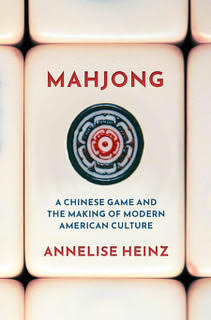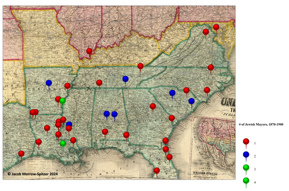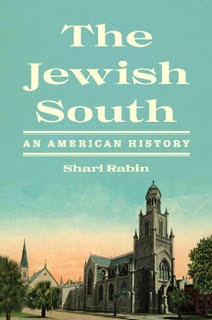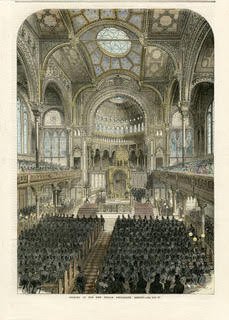Dr. Annelise Heinz and the History of Mahjong in the US
Arnold Hall 96 Wentworth Street, Charleston, SC, United StatesMahjong: A Chinese Game and the Making of Modern American Culture illustrates how the spaces between tiles and the moments between games have fostered distinct social cultures in the United States. This mass-produced game crossed the Pacific, creating waves of popularity over the twentieth century. Annelise Heinz narrates the history of this game to show how it has created a variety of meanings, among them American modernity, Chinese American heritage, and Jewish American women's culture.
As it traveled from China to the United States and caught on with Hollywood starlets, high society, middle-class housewives, and immigrants alike, mahjong became a quintessentially American game.
Heinz also reveals the ways in which women leveraged a game to gain access to respectable leisure. The result was the forging of friendships that lasted decades and the creation of organizations that raised funds for the war effort and philanthropy. No other game has signified both belonging and standing apart in American culture.
Southern Jewish Politics and the Coming of the New South
Arnold Hall 96 Wentworth Street, Charleston, SC, United StatesIn the immediate aftermath of the Civil War, the political landscape of the American South transformed drastically. Local offices previously dominated by the slave-owning planter elite now sat a racially, ethnically, and economically diverse pool of politicians. Among this new cohort of officeholders were scores of Jewish immigrants, over fifty of whom served as mayors of southern towns between 1870 and 1900. In an era often defined by political turbulence and race-based electoral violence, these local Jewish politicians became some of the unsung leaders of southern towns.
Sunday Brunch: The Jewish South: New Histories with Dr. Shari Rabin
Arnold Hall 96 Wentworth Street, Charleston, SC, United StatesJoin us over Sunday brunch for a conversation about Dr. Shari Rabin’s forthcoming The Jewish South: An American History (Princeton University Press, 2025). Dr. Rabin’s book is the first narrative survey of southern Jewish history. Exploring dynamics of race and religion, it features a wide range of Jewish southerners whose stories complicate popular understandings of their region. In this presentation, Rabin, who taught southern Jewish history at the College of Charleston from 2015-2019, will discuss the process of writing this book and share some of the most intriguing finds from her research.
This hybrid event will take place in the Jewish Studies Center, Arnold Hall (Room 100) and via Zoom. Brunch will be served beginning at 9:00 AM.
Sunday Brunch: “From Kaluszyn to Paris and Beyond – Jewish Communities in Motion and Memory”
Arnold Hall 96 Wentworth Street, Charleston, SC, United StatesThis talk will share new research on the migration of Jews from Kaluszyn to Paris, in the early twentieth century and their wartime experiences. A branch of Kimble’s own family made this migration and in-depth research allows her to contextualize stories of community solidarity during the Nazi occupation, and bittersweet memorial during the Liberation and postwar period. Join us for a reflection on being Jewish in Paris between 1920 and 1950. This hybrid event will take place in the Jewish Studies Center, Arnold Hall (Room 100) and via Zoom. Brunch will be served beginning at 9:00 AM.
“Where were the Women? A History of Gendered Synagogue Space” – An illustrated lecture by Samuel D. Gruber
Arnold Hall 96 Wentworth Street, Charleston, SC, United StatesIn this talk Dr. Samuel Gruber presents an overview of the role of women in Jewish worship space but especially focuses on the types of physical spaces allowed to women in American synagogue architecture from the 18th century until today. Dr. Gruber will present historical material, some of which derives from the William Rosenthal Collection at the College of Charleston, and much of which comes from his own continuing investigation of synagogue buildings throughout the world.






